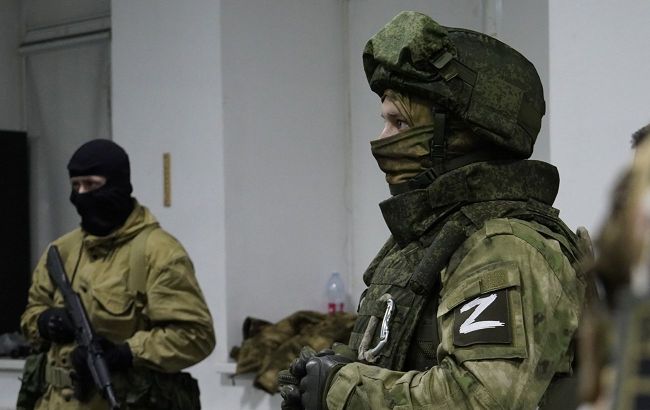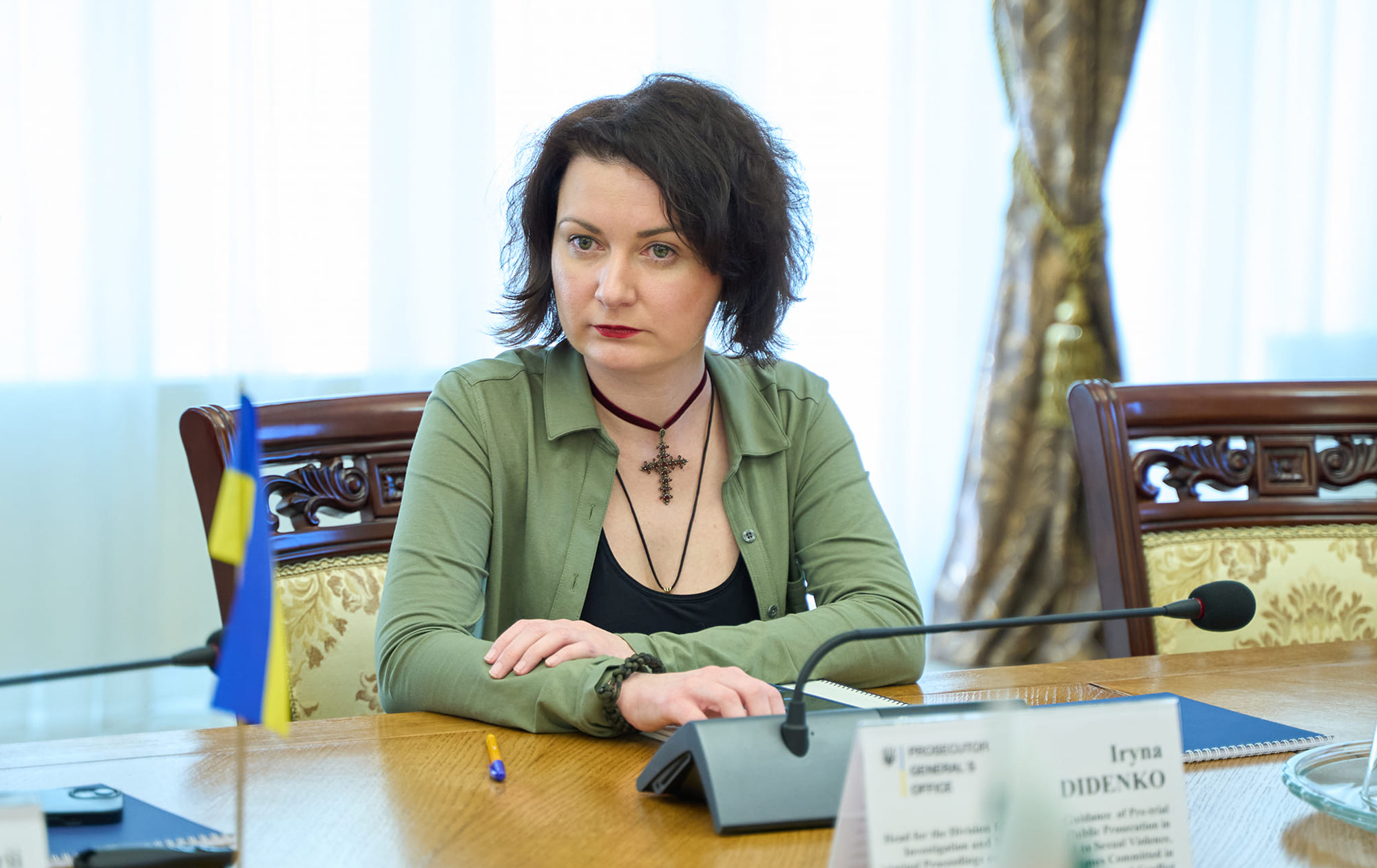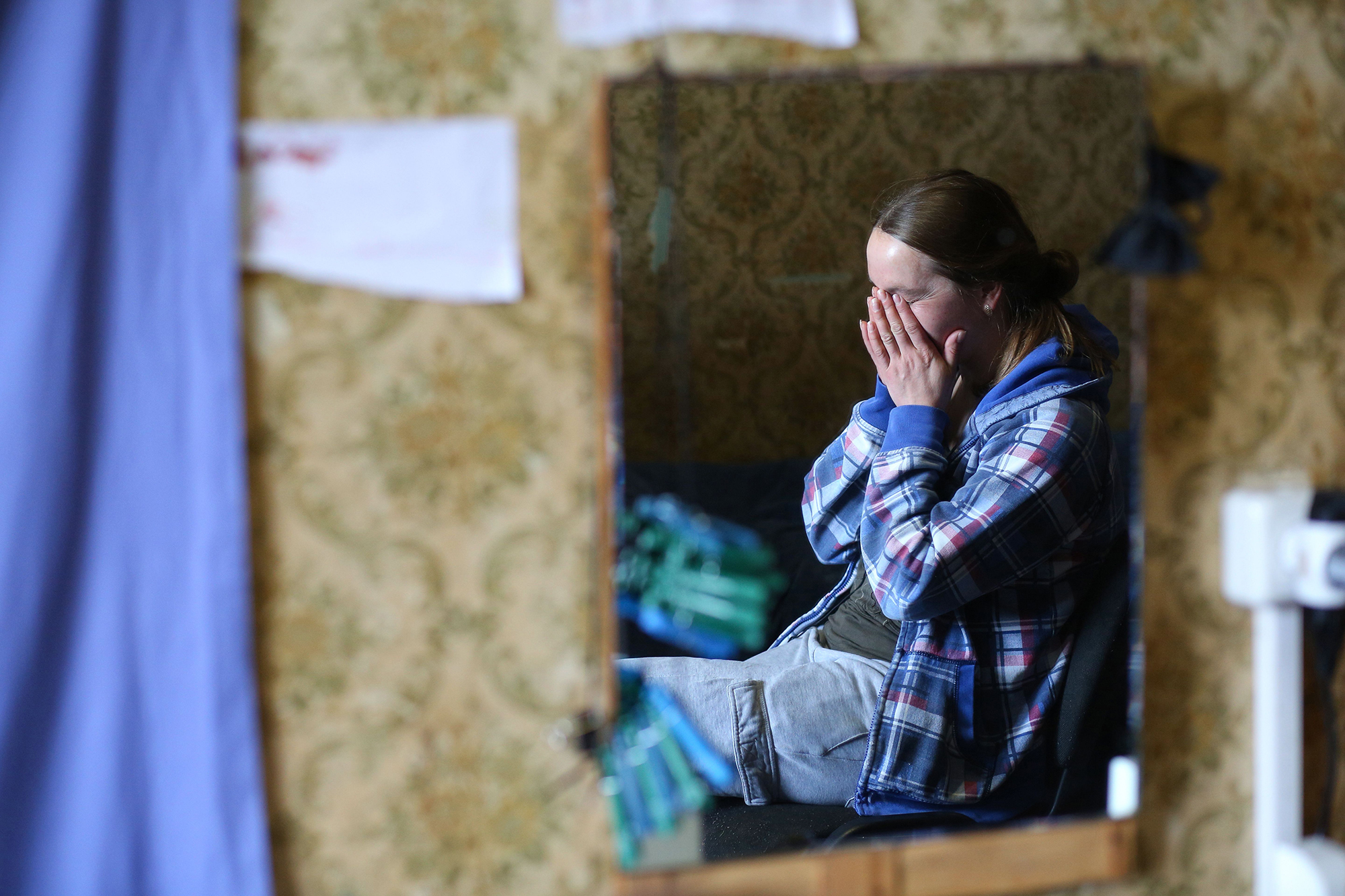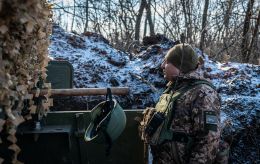'You wanted it" - What victims of Russian military violence fear and remain silent about
 Russian military (Photo: Getty Images)
Russian military (Photo: Getty Images)
How Ukraine investigates crimes of sexual violence committed by Russian occupiers, challenges faced by victims, and the importance of speaking out about such crimes.
Russian troops, after occupying parts of Ukraine, employ all available methods of terror against civilians. People are robbed, intimidated, and tortured, in an attempt to break their will to resist. One of the most heinous crimes widely committed by Russian occupiers is sexual violence.
Law enforcement agencies are currently investigating 178 cases of violence perpetrated by Russian soldiers. The age of the victims ranges from 4 to 83 years old. Nothing stops the occupiers - they commit rapes in the presence of families, threaten to kill loved ones, and subject victims to starvation. The sheer scale of the violence extends beyond individual crimes, taking on the characteristics of genocide.
The crime
On March 8th, Russian military forces occupied the village of Bohdanivka in the Chernihiv region. The following day, a group of invaders entered the yard of local resident Oleksii Zdorovets and shot his Alabai dog. The group's commander, who identified himself as Mykhailo Romanov, initially began to harass Zdorovets' wife. When he noticed a camouflage jacket, he became angry and shot several times above Zdorovets' head. On that day, the Oleksii managed to convince occupiers that the camouflage was equipment for playing airsoft, and Romanov left.
In the evening, he returned with a fellow serviceman, killed Zdorovets, and went searching for his wife, who was hiding in a boiler room with their three-year-old son. Romanov ordered the woman to come out of hiding and, when asked about her husband, declared, "He was a Nazi, so I shot him."
The soldier proceeded to threaten the woman, stating that he would kill her in front of her child, and ordered her to undress before sexually assaulting her. His companion also committed the same act. The Russians visited the Zdorovets' home several times afterward. During one of these "visits," the occupiers were so drunk that they fell asleep on the chairs where they had sat down to rest. Taking advantage of the opportunity, the woman managed to escape. She told her story to The Times and Amnesty International.
It soon became evident that this was not only one incident. As the Ukrainian Armed Forces liberated more and more settlements from the invaders, the Ukrainian and international community learned about increasingly shocking stories. Initially, journalists attempted to contact the families of identified rapists, urging their parents or wives to respond. In April of last year, the Security Service of Ukraine published intercepted communication revealing that one occupant's wife "allowed" her husband to rape Ukrainian women. Eventually, these inquiries became self-exhaustive.
At the same time, the large number of incidents quickly highlighted deficiencies in the system for investigating sexual violence. A specialized unit dedicated to such crimes began to take shape as early as 2021, says Prosecutor Iryna Didenko from the Office of the Prosecutor General.
 Iryna Didenko (Photo: Facebook)
Iryna Didenko (Photo: Facebook)
A new system has been introduced in Ukraine, guided by the principles of the Istanbul Convention (Council of Europe Convention on preventing and combating violence against women, including domestic violence). The system aims to bring about a paradigm shift in investigating such cases.
"The system has recognized its problem, which it previously failed to understand. The issue lies in its handling of the violence. Some individuals were summoned by subpoenas, while others were called in for forensic examinations. This outdated approach needed to be eliminated," noted Didenko.
The investigation
After the liberation of Ukrainian territories, prosecutors and investigators began visiting the freed villages, engaging in conversations with local residents. Prosecutor Didenko's task was to gauge the prevalence of violence as a widespread phenomenon.
"We received a signal from a woman who reported experiencing violence, and we roughly identified the location of her house. However, I mistakenly entered a different house. There was another woman in the courtyard, and as I inquired about her well-being, she burst into tears. When I asked about violence, she lowered her eyes. This gesture itself indicated that it had indeed occurred," shared the Prosecutor.
On the liberated territories, people were not always ready to communicate with law enforcement officers, instead preferring to interact more willingly with volunteers and medical professionals. "What do people want after the liberation? They want to eat and secure their windows with oilcloth. We realized that we couldn't handle it alone and started to collaborate with others," highlighted Didenko.
Prosecutors began accompanying teams of doctors and volunteers during their visits. While the latter provided necessary assistance to the residents, investigators carefully interviewed the locals. For those who were unwilling to speak at the moment, authorities designed special brochures containing essential information and contact details. This allowed potential victims to study the material, note down phone numbers, or leave their contact information.
One such person, Karina (name changed for her safety), took the initiative to share her phone number when the occupiers arrived at her village in the Kyiv region. She was only 20 years old at the time. Initially, the Russian forces roamed the streets and confiscated phones from local residents. Subsequently, they began abducting women.
"There were no words or explanations. It was simply 'undress' and that was it. It was all under the pretense of 'discussing the phone' that they took away from me," Karina recounted in an interview with RBC-Ukraine.
When her village was liberated, and various services arrived in the city, Karina passed on her phone number. Investigators view this as a "signal," a connection with the victim, waiting for her readiness to proceed. However, sometimes that moment never arrives. Women and men who have suffered at the hands of the occupiers often fear revealing their identities, opting instead to address their issues with a psychologist.
_1.jpg)
Victims in Bucha provide testimonies to the police (Photo: Getty Images)
Experts cite several factors as to why victims do not want to publicly speak about their experiences. Many fear that the Russians will return and seek revenge. Some discontinue cooperation with law enforcement during the stage of working with local police. According to psychologist Natalia Potseluieva, who collaborates with the Andreev Family Charity Foundation, changes in working with victims are already noticeable, but they are still at the top of the law enforcement hierarchy. The situation in the regions is somewhat different.
"Just a few days ago, I received a call from a psychologist from Chernihiv who we invited to a training project. They were evacuating a woman after sexual violence, and a juvenile police investigator from the law enforcement agency told her, 'You wanted it, why are you making a fuss? Show how you resisted, show the marks, show how you fought,'" Potseluieva recounts.
There have been cases where investigators accidentally disclosed complete information about the victim, and the details of the case instantly became public knowledge, leading the person who suffered from violence to terminate their cooperation with law enforcement.
International standards
The sensitive issue of sexual violence during armed conflict required fundamentally new approaches for Ukraine, and they were quickly found. In the summer, employees of the Office of the Prosecutor General reported to the newly appointed prosecutor, Andrii Kostin. Iryna Didenko spoke about the need for change, and the Prosecutor General decided to establish a separate department that would focus entirely on investigating sexual violence during armed conflict.
"The first thing we did was gather all the cases that exist in the regions and simply asked them to stop. To do nothing so as not to cause harm. We now have two pilot regions that are working with new standards - Kherson and Kharkiv," Didenko noted.
The Office of the Prosecutor General began cooperating with international partners and learning from psychologists who had experience in countries affected by war and occupation. The first and most important innovation was establishing trust in the victim. Investigators do not question the victim's account of violence -they do not force them to undergo a forensic medical examination or summon them to the authorities.
"Previously, it was about proving that something happened to you. Now it's the opposite. It's my duty to prove what happened to you," Didenko stated.
Each action is carried out only with the consent of the victim, who can say "stop" at any moment. Every interview with the victim takes place in the presence of psychologists. The main rule of international protocols is to do no harm.
"We saw this in the ICC. Psychologists provide a report to the prosecutor and judge about the condition of the victim and witness, about forbidden things or phrases that should not be used when questioning a witness or victim because they can trigger a reaction," said the Prosecutor.
The protocol includes a large number of additional conditions, including the attire color of the investigators who enter the liberated territory or interact with the victim. In the future, the Office of the Prosecutor General plans to scale up the department dealing with the investigation of sexual violence into a unit that includes not only prosecutors but also social workers, psychologists, and other professionals involved in the course of the investigation.
"It is now evident that we need to launch this. The first and only emotion is the desire to protect our people. To do everything to make their lives better because they are brave, they have bravely endured these events," Didenko added.
However, one of the main factors why victims do not seek help lies beyond the scope of law enforcement work. One of the main reasons individuals hesitate to come forward is the fear of society's condemnation.
"It's your fault"
Considered just the tip of the iceberg, the 178 reported cases of sexual violence against civilians in the Office of the Prosecutor General are believed to represent only a fraction of the actual incidents. Psychologists who assist these victims confirm that the number is much higher. However, due to concerns over privacy and the harsh societal judgment surrounding such cases, victims remain reluctant to disclose their experiences. Each case, with its own harrowing details, should be treated as a grave war crime, and the perpetrators should face justice.
"I am currently working with two victims, but in my own village, my patients know of at least 4-5 other women who have suffered as well. They choose not to speak out because they believe it won't make a difference. They don't want people to say, 'It's your fault for walking on the street instead of staying in the basement,'" emphasized a psychologist.
In liberated villages, some locals resort to writing insults on fences, accusing victims of violence for simply being seen near a house occupied by Russian forces. The victims face baseless accusations without any regard for the threats and blackmail they endure from the occupiers. Young women are particularly vulnerable to this "guilt by association" condemnation. The primary accusation in such cases is that they "provoked it themselves."
"People often confuse sexual violence with pleasure. But it's not about pleasure; it's about destruction. People are confused; they fail to comprehend the realities of war and its context. Our victims range in age from 4 to 83. What are we really talking about?" highlighted Didenko, an advocate for victims.

Illustrative photo (Getty Images)
Karina, a young woman who suffered at the hands of the occupiers, notes that criticism often comes from those who either left before the occupation or took advantage of the "green corridor." Those who have witnessed the behavior of Russian aggressors are less likely to mock the victims of violence.
According to psychologist Potseluieva, stigmatization is a broader societal issue that predates the Russian invasion of Ukraine.
"Society itself must become more empathetic. One of my clients is in the seventh grade at a rural school. Her health education tests have questions like: 'If a woman is dressed in a short skirt and a low-cut blouse, it means: a. she wants sex; b. she doesn't want sex; c. it doesn't mean anything.' I couldn't believe it at first. And some teachers say the correct answer is 'a'," shared Potseluieva.
Furthermore, the actions of Russian occupiers toward the civilian population possess all the hallmarks of genocide. Sexual violence is just one aspect; primarily, Russian forces inflict psychological violence by subjecting children to acts of violence in the presence of their parents and spouses in front of their husbands. According to victims' testimonies, the commanders are often the ones orchestrating these acts of violence.
"There have been cases where the commander explicitly ordered such acts. In another region, a commander said, 'As the superior, I have the right to claim priority, and you come after me,'" disclosed Didenko.
The more victims speak out about the violence they endured, the greater the number of military crimes that will be examined at the International Criminal Court. Consequently, the likelihood of the perpetrators facing punishment increases significantly. By reporting incidents of violence, victims can access qualified assistance, and the system can adjust and improve to better meet the needs of victims of violence.
"Numerous condemnations have indeed taken place, but I pay no attention to them," Karina asserts.
In order to combat stigmatization, the Office of the General Prosecutor decided to engage with stakeholders and representatives of local self-government. Village heads, and city mayors, in turn, are expected to provide educational sessions to explain to people what sexual violence is and why a victim cannot be blamed for what happened to them.
Today, Ukrainian law enforcement actively collaborates with international counterparts, gathering abundant evidence against the aggressor country and leaving the Kremlin with no room for maneuver. Rapists are being identified, direct evidence is being found, and their names are becoming known.
At the same time, it is crucial to understand that change is necessary not only for law enforcement but also for society itself. The international community demonstrates its readiness to assist Ukrainians in punishing the occupiers, with the warrant for the arrest of Russian dictator Vladimir Putin being a vivid confirmation of this. Therefore, the more crimes are documented, the harder it will be for Russia to evade fair punishment.

